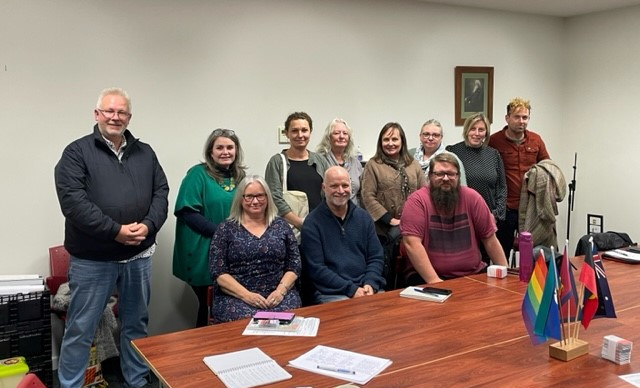Addressing homelessness requires a united front and support organisations and agencies are joining forces to tackle the challenge.

The Northern Community Action Group (NCAG) – a sub-group of the City of Launceston’s Homelessness Advisory Committee – brings together a range of organisations with the aim of creating a safety net to support individuals in need.
Members of the group include representatives from Homes Tasmania, the Salvation Army, St Vincent de Paul, Anglicare, CatholicCare, Launceston City Mission, Shekinah House, City of Launceston, GroWaverley, Stride and Strike it Out.
Justine Brooks, Manager Specialist Homelessness Programs for Homes Tasmania and a member of NCAG, says collaboration between community support services is powerful in combatting homelessness, offering tailored assistance and streamlining service delivery.
“With increasing numbers of Tasmanians experiencing homelessness, collaboration between community support services stands out as an effective and practical approach,” she says.
“Homelessness is a complex issue and demands a broad approach. The lack of stable housing is often a symptom of broader systemic problems, such as economic inequality, mental health issues, substance abuse and family breakdowns. A coordinated and unified response is essential to tackle the root causes and provide meaningful support to those in need.
“We can only make strides in solving one of society's most pressing challenges through collective action and shared commitment.”
By pooling the expertise and resources of its members – such as Safe Spaces and shelters, food banks, mental health and substance abuse treatment centres, job training programs, and social service agencies – the group is building a comprehensive safety net for people experiencing homelessness.
“Learning from each other’s experiences and sharing information fosters an environment of continuous improvement, innovation, and the ability to adapt and respond to emerging needs and trends,” Justine says.
“When we work together, it provides the opportunity for enhancing the efficiency in delivering services. Collaboration also means that we aren’t duplicating services or missing gaps in assistance and support.”
Such collaborative efforts between support services are already delivering positive outcomes, with many cities nationwide experiencing significant reductions in homelessness and increased success rates in transitioning people to stable housing.
“This streamlined approach ensures that homeless individuals receive the support they require promptly and efficiently, reducing the time they spend without shelter and increasing their chances of successfully transitioning out of homelessness,” Justine says.
Back to news and announcements
